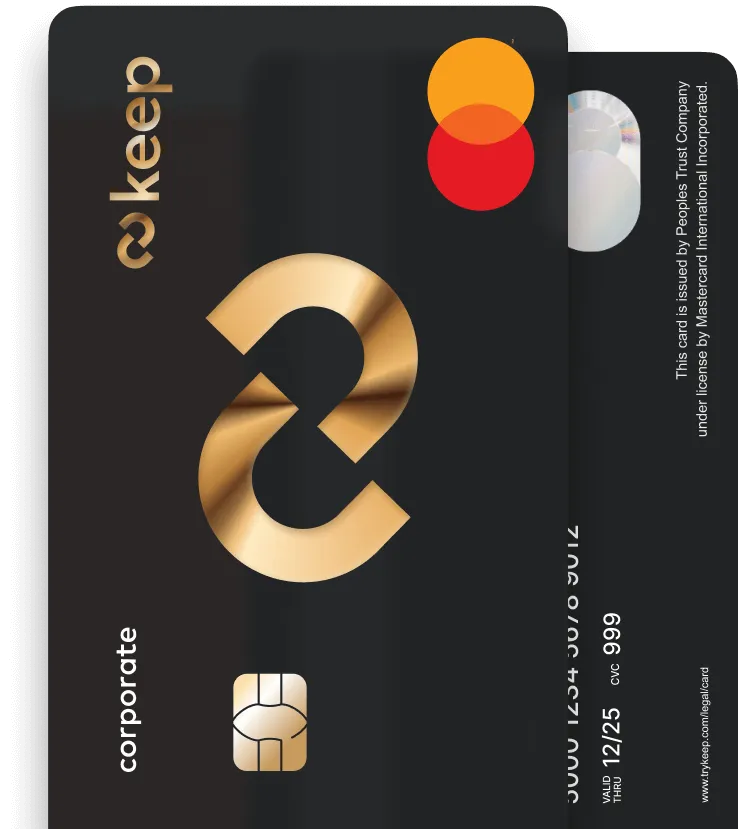What is Miscellaneous Expenses?
Miscellaneous expenses represent a fundamental yet often misunderstood aspect of financial management. These expenses encompass various costs that don't align with standard expense categories, typically characterized by their small amounts and irregular occurrence. The proper management of these expenses plays a crucial role in maintaining accurate financial records and ensuring comprehensive budget control for both businesses and individuals.

What Defines a Miscellaneous Expense in Financial Management
Miscellaneous expenses function as a versatile category in accounting systems, accommodating costs that resist traditional classification. These non-recurring, variable expenses often emerge unexpectedly and require special attention in financial planning. While their individual amounts might seem insignificant, their cumulative impact can substantially affect an organization's bottom line.
The classification of miscellaneous expenses demands careful consideration and consistent review. Organizations must establish clear guidelines to determine which expenses qualify for this category, ensuring that the classification remains meaningful and doesn't become a convenient dumping ground for poorly documented costs.
Financial managers must maintain a delicate balance between flexibility and control when handling miscellaneous expenses. This balance becomes particularly critical in larger organizations where the volume of transactions can make proper categorization challenging.
Common Types of Business and Personal Miscellaneous Expenses
The landscape of miscellaneous expenses varies significantly across different contexts and organizational structures. Understanding these variations helps in developing appropriate management strategies and maintaining accurate financial records.
In the business environment, miscellaneous expenses often include:
- Minor office supply purchases
- Occasional equipment repairs
- Small-scale professional development materials
- Incidental travel costs
- One-time marketing materials
- Unexpected bank charges
For individuals managing personal finances, typical miscellaneous expenses encompass:
- Sporadic ATM fees
- Occasional parking charges
- Small charitable contributions
- Irregular subscription services
- Unplanned household supplies
Essential Accounting Practices for Miscellaneous Expense Management
The accounting treatment of miscellaneous expenses requires systematic attention and precise documentation. When recording these expenses, accountants must ensure proper categorization while maintaining the flexibility inherent to this expense type. The process involves careful consideration of materiality thresholds and regular review of expense patterns.
Proper documentation serves as the foundation for effective miscellaneous expense management. Each transaction must include detailed information about its purpose, timing, and business relevance. This documentation becomes particularly valuable during audits and tax preparation.
Organizations benefit from establishing clear protocols for handling miscellaneous expenses. These protocols should address approval processes, documentation requirements, and regular review procedures to maintain control over these variable costs.
Strategic Importance of Miscellaneous Expense Control
Effective management of miscellaneous expenses contributes significantly to overall financial health. Organizations that maintain tight control over these expenses often discover opportunities for cost reduction and process improvement. Regular analysis of miscellaneous expenses can reveal spending patterns that warrant the creation of new, specific expense categories.
The impact of miscellaneous expenses extends beyond simple cost tracking. These expenses can affect budgeting accuracy, financial reporting clarity, and tax planning strategies. Organizations must consider these broader implications when developing their expense management policies.
Financial transparency benefits significantly from proper miscellaneous expense management. Stakeholders and investors appreciate clear, well-documented financial records that demonstrate careful attention to all expense categories, including miscellaneous items.
Modern Technology Solutions for Expense Tracking
Contemporary financial management benefits from advanced technological solutions that streamline expense tracking and categorization. These tools provide real-time visibility into spending patterns and automate much of the documentation process.
- Digital receipt management systems automatically capture and store expense documentation.
- Artificial intelligence algorithms help identify patterns in miscellaneous spending.
- Cloud-based accounting platforms enable immediate expense categorization and reporting.
- Mobile applications facilitate on-the-go expense tracking and approval processes.
Future Trends in Miscellaneous Expense Management
The evolution of financial technology continues to reshape how organizations handle miscellaneous expenses. Advanced analytics and machine learning algorithms increasingly assist in identifying patterns within seemingly random expenses, enabling more precise categorization and forecasting.
The trend toward greater expense granularity suggests that the traditional concept of miscellaneous expenses may evolve significantly. Organizations increasingly seek ways to categorize expenses more specifically, potentially reducing reliance on catch-all categories.
Real-time financial management tools are becoming more sophisticated, offering unprecedented visibility into expense patterns and enabling more proactive control over miscellaneous spending. This technological advancement supports better decision-making and more accurate financial planning.
Tax Implications and Compliance Considerations
Understanding the tax treatment of miscellaneous expenses requires careful attention to changing regulations and documentation requirements. Organizations must maintain detailed records that demonstrate the business necessity of these expenses, particularly in preparation for potential audits.
The tax deductibility of miscellaneous expenses varies significantly between business and personal contexts. Recent tax law changes have affected how these expenses can be claimed, making it essential for organizations and individuals to stay informed about current regulations.
Professional guidance often proves valuable in navigating the complex tax implications of miscellaneous expenses. This expertise helps ensure compliance while maximizing legitimate tax benefits associated with these expenses.
Building Effective Miscellaneous Expense Policies
Creating comprehensive policies for miscellaneous expenses establishes clear guidelines for all stakeholders. These policies should address approval processes, documentation requirements, and spending limits while maintaining sufficient flexibility to accommodate genuine miscellaneous expenses.
Regular policy reviews ensure continued relevance and effectiveness. Organizations should adjust their policies based on observed patterns, changing business needs, and emerging best practices in financial management.
The success of miscellaneous expense policies depends heavily on clear communication and consistent enforcement. Training programs and regular updates help ensure all staff members understand and follow established procedures for handling these expenses.
Digital Solutions for Streamlined Expense Management
Modern technology offers robust solutions for managing miscellaneous expenses effectively. Digital expense tracking platforms integrate seamlessly with accounting software, providing real-time visibility into spending patterns and automated categorization features. These tools eliminate manual data entry and reduce the risk of human error in expense tracking.
Advanced analytics capabilities within these platforms help identify spending trends and potential areas for cost optimization. The automation of receipt capture and storage ensures compliance with tax requirements while simplifying the documentation process.
Building a Culture of Financial Accountability
Organizations benefit from establishing clear guidelines and expectations around miscellaneous expense management. Regular training sessions and open communication about expense policies help employees understand their responsibilities and the importance of proper documentation.
Creating a supportive environment where team members feel comfortable discussing expense-related questions promotes better compliance with policies. This approach leads to more accurate reporting and helps prevent misuse of the miscellaneous expense category.
Implementing Regular Expense Reviews
Regular expense reviews provides organizations with crucial insights into their spending patterns and opportunities for optimization. These systematic evaluations enable businesses to maintain control over their miscellaneous expenses while ensuring compliance with established policies and tax regulations.
Through careful monitoring and analysis, companies can identify recurring costs that might benefit from reclassification, streamline their expense categories, and implement more efficient purchasing strategies that contribute to overall cost reduction.
- Conduct monthly audits of miscellaneous expenses to identify recurring patterns that might warrant new expense categories.
- Review expense documentation quality to ensure compliance with tax requirements and internal policies.
- Analyze spending trends to identify opportunities for cost reduction or bulk purchasing.
- Compare miscellaneous expenses across different departments to standardize practices.
- Evaluate the effectiveness of expense management tools and processes.
Adapting to Remote Work Expense Challenges
The shift toward remote work has introduced new considerations in miscellaneous expense management. Organizations must adapt their policies to accommodate home office expenses, virtual collaboration tools, and other remote work necessities while maintaining proper controls and documentation standards.
Remote work arrangements have expanded the scope of what constitutes a legitimate business expense, requiring greater flexibility in expense policies. However, this flexibility must be balanced with clear guidelines to prevent misuse and ensure compliance with tax regulations.
Strategic Miscellaneous Expense Management
Start optimizing your miscellaneous expense management today by implementing comprehensive tracking systems and clear policies. Proper management of these expenses contributes significantly to organizational efficiency and financial health, while ensuring compliance with tax regulations and accounting standards.
Strategic expense management requires ongoing attention to detail and regular policy updates. Organizations that maintain disciplined oversight of miscellaneous expenses often discover opportunities for cost savings and process improvements.
The combination of technology, clear policies, and regular review processes creates a foundation for sustainable financial management. When organizations prioritize effective expense management, they position themselves for improved financial performance and operational efficiency.
Sources: [1] https://accountinginsights.org/managing-miscellaneous-expenses-in-finance/ [2] https://www.accountingtools.com/articles/miscellaneous-expense [3] https://ramp.com/blog/what-are-miscellaneous-expenses [4] https://www.bill.com/learning/miscellaneous-expenses [5] https://www.uaf.edu/finserv/finance-accounting/account-codes/miscellaneous.php [6] https://www.accountingcoach.com/blog/miscellaneous-expense [7] https://www.volopay.com/expense-management/business-expense-categories/ [8] https://professionalleadershipinstitute.com/resources/miscellaneous-business-expenses/ [9] https://ebizcharge.com/blog/billable-expense-income-what-it-is-how-to-track-it-and-more/

Ditch the Big 5
Apply online for a Keep Business Mastercard in just 8 minutes - with approvals in 72 hours or less.




